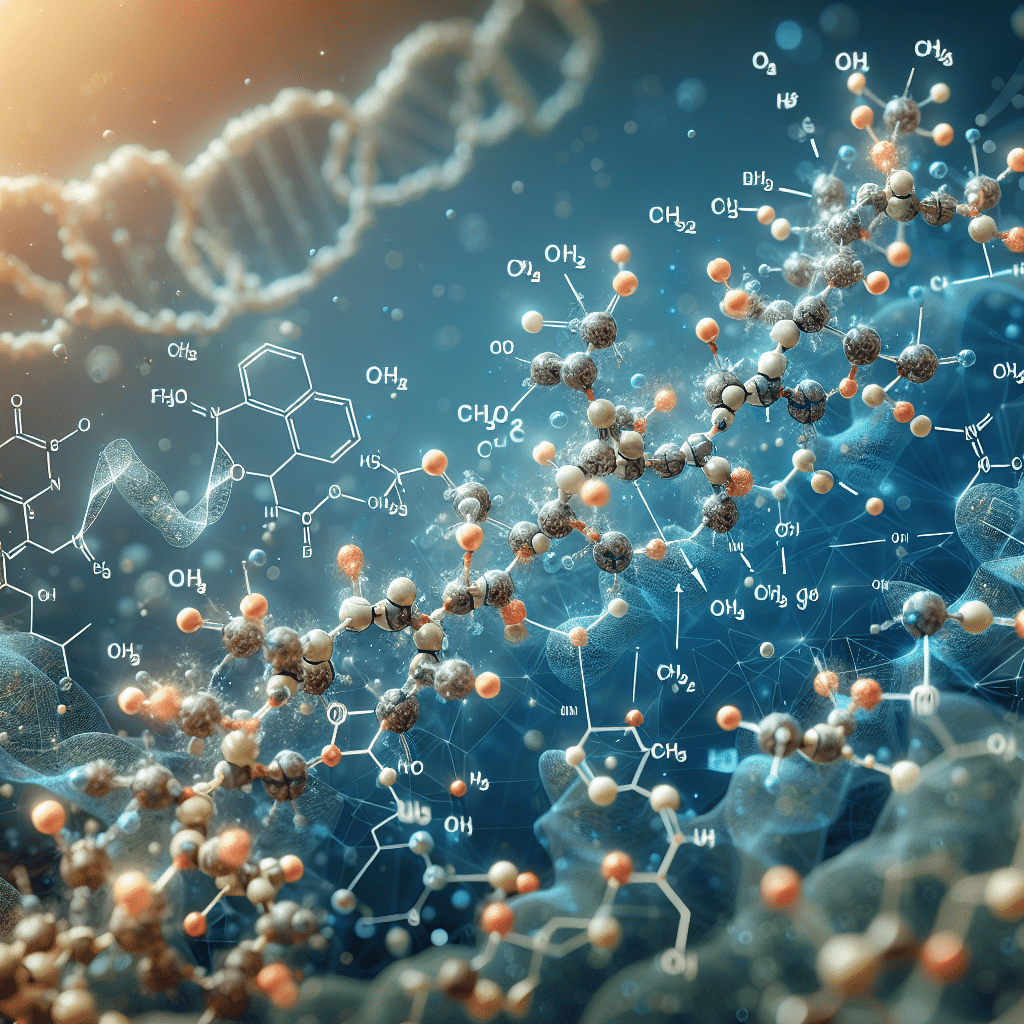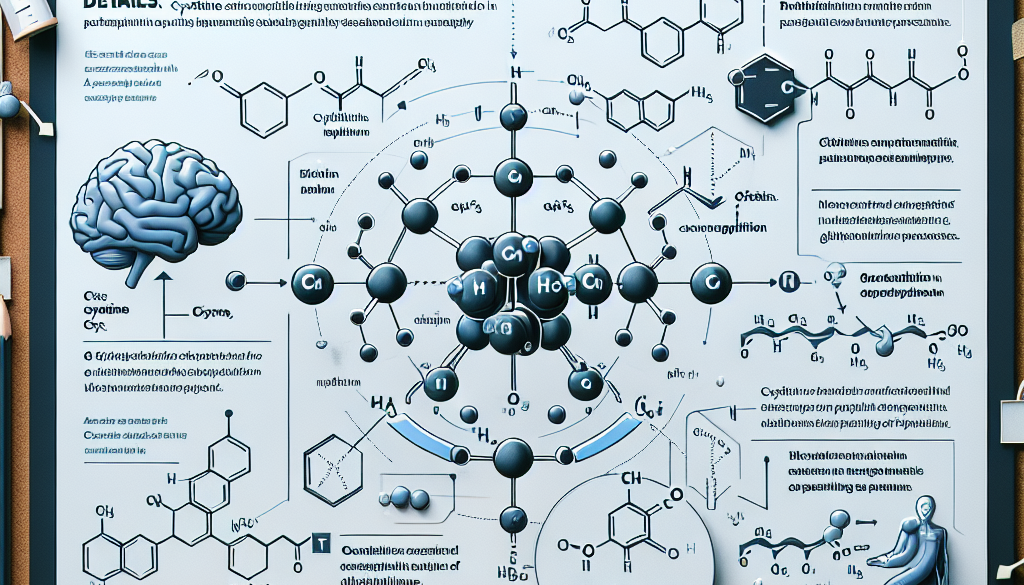Cysteine in Glutathione Detox: Role
-
Table of Contents
- Cysteine’s Crucial Role in Glutathione Detoxification
- Understanding Glutathione and Its Importance
- The Role of Cysteine in Glutathione Synthesis
- Detoxification Mechanisms Involving Cysteine and Glutathione
- Benefits of Cysteine in Glutathione Detoxification
- Case Studies and Research on Cysteine and Glutathione
- Supplementation and Dietary Sources of Cysteine
- Conclusion: The Integral Role of Cysteine in Detoxification
- Discover ETprotein’s High-Quality Protein Products
Cysteine’s Crucial Role in Glutathione Detoxification

Detoxification is a vital biological process that helps maintain the body’s internal balance and overall health. At the heart of this process lies glutathione, a powerful antioxidant that is essential for neutralizing harmful substances and protecting cells from damage. Cysteine, an amino acid, plays a pivotal role in the synthesis and function of glutathione. This article delves into the importance of cysteine in glutathione detoxification, exploring its mechanisms, benefits, and applications.
Understanding Glutathione and Its Importance
Glutathione is often referred to as the “master antioxidant” due to its central role in the body’s detoxification system. It is a tripeptide composed of three amino acids: glutamine, glycine, and cysteine. Glutathione is found in every cell of the body and is essential for protecting cells from oxidative stress, which can lead to chronic diseases and aging.
The Role of Cysteine in Glutathione Synthesis
Cysteine is the limiting precursor in the synthesis of glutathione, meaning that its availability directly influences the production of glutathione. The body can obtain cysteine through diet or synthesize it from the amino acid methionine. However, in times of stress or illness, the demand for cysteine may exceed the body’s ability to produce or consume it, making supplementation necessary.
- Synthesis of Glutathione: Cysteine’s thiol (sulfhydryl) group is critical for the catalytic activity of glutathione peroxidases, enzymes that reduce peroxides and protect the body from oxidative damage.
- Regeneration of Glutathione: After neutralizing free radicals, glutathione becomes oxidized and must be regenerated. Cysteine is vital for this regeneration process.
Detoxification Mechanisms Involving Cysteine and Glutathione
Glutathione detoxification occurs primarily in the liver, where it conjugates with toxins to form water-soluble compounds that can be excreted. This process is known as glutathione conjugation and is a critical component of phase II detoxification.
- Conjugation: Glutathione S-transferases catalyze the binding of glutathione to toxins, aiding in their removal from the body.
- Antioxidant Defense: Glutathione directly neutralizes reactive oxygen species (ROS) and reactive nitrogen species (RNS), preventing cellular damage.
- Immune Function: Adequate levels of cysteine and glutathione support the immune system by enhancing the proliferation of lymphocytes and the production of cytokines.
Benefits of Cysteine in Glutathione Detoxification
The benefits of cysteine in supporting glutathione levels are far-reaching, impacting various aspects of health and wellness.
- Chronic Disease Prevention: By maintaining optimal glutathione levels, cysteine helps prevent the onset of chronic diseases associated with oxidative stress, such as heart disease, diabetes, and cancer.
- Anti-Aging Effects: Glutathione slows down the aging process by protecting cells from damage caused by free radicals and toxins.
- Improved Liver Health: Supporting glutathione synthesis, cysteine enhances the liver’s detoxification capacity, promoting overall liver function and health.
Case Studies and Research on Cysteine and Glutathione
Several studies have highlighted the importance of cysteine in maintaining glutathione levels and enhancing detoxification processes.
- A study published in the Journal of Applied Physiology showed that cysteine supplementation increased glutathione levels and improved antioxidant capacity in human subjects.
- Research in the European Journal of Clinical Investigation found that cysteine and glycine supplementation in elderly individuals led to a significant increase in glutathione synthesis and a reduction in oxidative stress markers.
Supplementation and Dietary Sources of Cysteine
To ensure adequate cysteine levels for optimal glutathione production, individuals can turn to dietary sources or supplementation.
- Dietary Sources: High-protein foods such as poultry, eggs, dairy, red peppers, garlic, onions, Brussels sprouts, and oats are rich in cysteine.
- Supplementation: N-acetylcysteine (NAC) is a commonly used supplement that provides a stable form of cysteine and has been shown to boost glutathione levels effectively.
Conclusion: The Integral Role of Cysteine in Detoxification
In conclusion, cysteine is an indispensable component of the body’s detoxification system, primarily due to its role in glutathione synthesis and function. By maintaining adequate cysteine levels through diet or supplementation, individuals can support their body’s natural defenses against oxidative stress and toxin accumulation, promoting overall health and longevity.
Discover ETprotein’s High-Quality Protein Products
For those looking to enhance their cysteine intake through dietary supplementation, ETprotein offers a range of high-quality protein products. Their extensive selection includes organic rice protein, pea protein, and various seed proteins, all of which are rich in amino acids, including cysteine. ETprotein’s commitment to non-GMO, allergen-free, and high-purity ingredients makes them a top choice for consumers seeking to support their glutathione levels and overall health.
About ETprotein:
ETprotein, a reputable protein and L-(+)-Ergothioneine (EGT) Chinese factory manufacturer and supplier, is renowned for producing, stocking, exporting, and delivering the highest quality organic bulk vegan proteins and L-(+)-Ergothioneine. They include Organic rice protein, clear rice protein, pea protein, clear pea protein, watermelon seed protein, pumpkin seed protein, sunflower seed protein, mung bean protein, peanut protein, and L-(+)-Ergothioneine EGT Pharmaceutical grade, L-(+)-Ergothioneine EGT food grade, L-(+)-Ergothioneine EGT cosmetic grade, L-(+)-Ergothioneine EGT reference grade and L-(+)-Ergothioneine EGT standard. Their offerings, characterized by a neutral taste, non-GMO, allergen-free attributes, with L-(+)-Ergothioneine purity over 98%, 99%, cater to a diverse range of industries. They serve nutraceutical, pharmaceutical, cosmeceutical, veterinary, as well as food and beverage finished product distributors, traders, and manufacturers across Europe, USA, Canada, Australia, Thailand, Japan, Korea, Brazil, and Chile, among others.
ETprotein specialization includes exporting and delivering tailor-made protein powder and finished nutritional supplements. Their extensive product range covers sectors like Food and Beverage, Sports Nutrition, Weight Management, Dietary Supplements, Health and Wellness Products, and Infant Formula, ensuring comprehensive solutions to meet all your protein needs.
As a trusted company by leading global food and beverage brands and Fortune 500 companies, ETprotein reinforces China’s reputation in the global arena. For more information or to sample their products, please contact them and email sales(at)ETprotein.com today.












